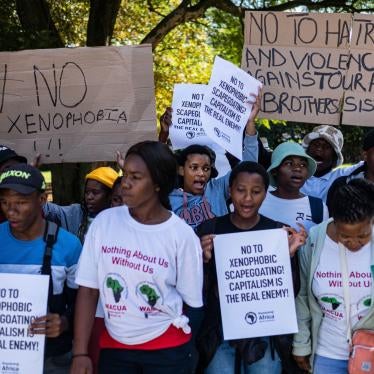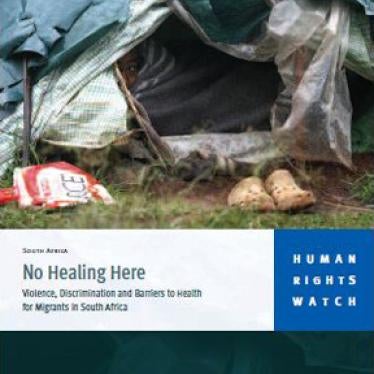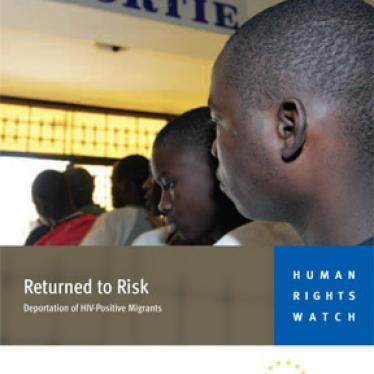With incidents of xenophobic violence more frequent these days, does South Africa’s ruling party really think refugee camps are the answer?
It's hard to say exactly how many immigrants there are in South Africa; estimates range from 2-5 million, out of a population of 50 million. Last week thousands of people began to loot foreign-owned shops and attack “foreigners” in Durban. Several people died and thousands were displaced. UNHCR, the UN Refugee Agency, says three camps holding victims of xenophobic attacks in Durban contain about 2,400 people. The target of the widespread violence was African immigrants, mostly those from Zimbabwe and Somalia. If unchecked, these xenophobic attacks could soon engulf Durban and spread to other parts of South Africa.
To date, the police have arrested 22 people, but have failed to stop the looting which continues.
Statements by traditional leaders and government officials may have fueled the violence or, at the very least, have done little to tackle it. On March 21, Zulu King Goodwill Zwelithini said in remarks to the media that foreigners should “pack their bags and go home.”
Government officials have denied that the violence against foreign nationals has been motivated by xenophobia or other forms of intolerance. They said the violence was as a result of “pure acts of criminality.” The African National Congress (ANC) Party Secretary General Gwede Mantashe told the media this week that he believes the solution to xenophobia is the establishment of refugee camps.
These responses are ill-informed and will do nothing to address the root causes of recurring xenophobia in South Africa.
Last year in May and June, xenophobic attacks on the businesses and homes of refugees, asylum-seekers, and migrants displaced hundreds of people in the Orange Farm and Diepsloot areas of Gauteng province and forced more than 60 foreign-owned shops to close. In June and September, similar attacks against Somali nationals in KwaZakhele and New Brighton areas of Port Elizabeth, Eastern Cape Province, left several shops looted and burnt. In 2008, xenophobic violence resulted in the deaths of over 60 people across the country.
To combat xenophobia, an important first step is for the police and the government to publicly acknowledge that ongoing attacks on foreign nationals and their property are xenophobic and then take decisive action to tackle it. This should include prioritizing reforms to combat xenophobia, ensuring proper police investigations of xenophobic crimes, and holding to account those responsible.
Reckless and inflammatory public statements, such as those made by Zwelithini prior to the Durban violence, should be unambiguously condemned. And those who cross the line into direct incitement to violence against migrants should be prosecuted.
For a country that projects itself as an African human rights champion, the litmus test will be how the South African government stems this dangerous tide of xenophobia.








